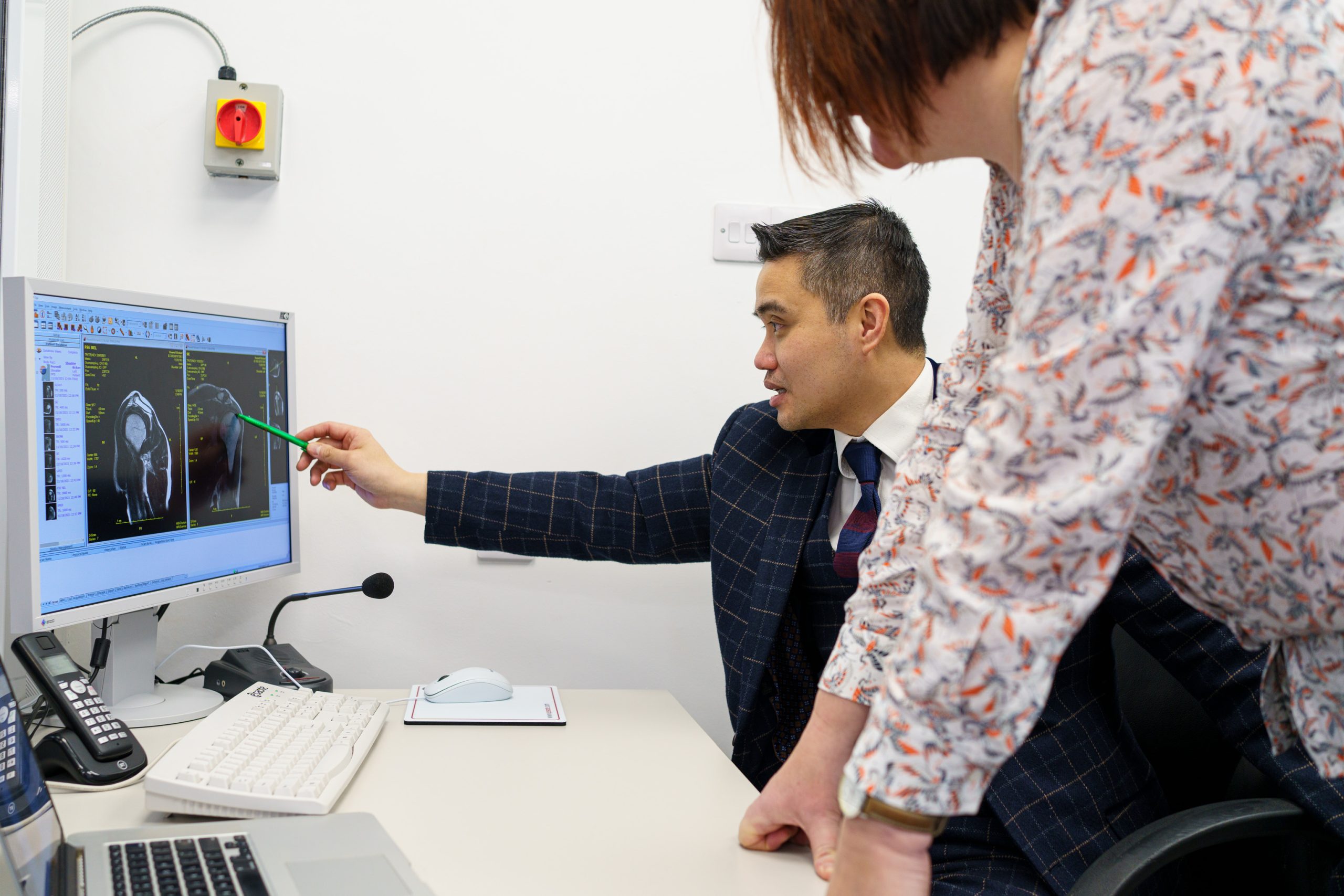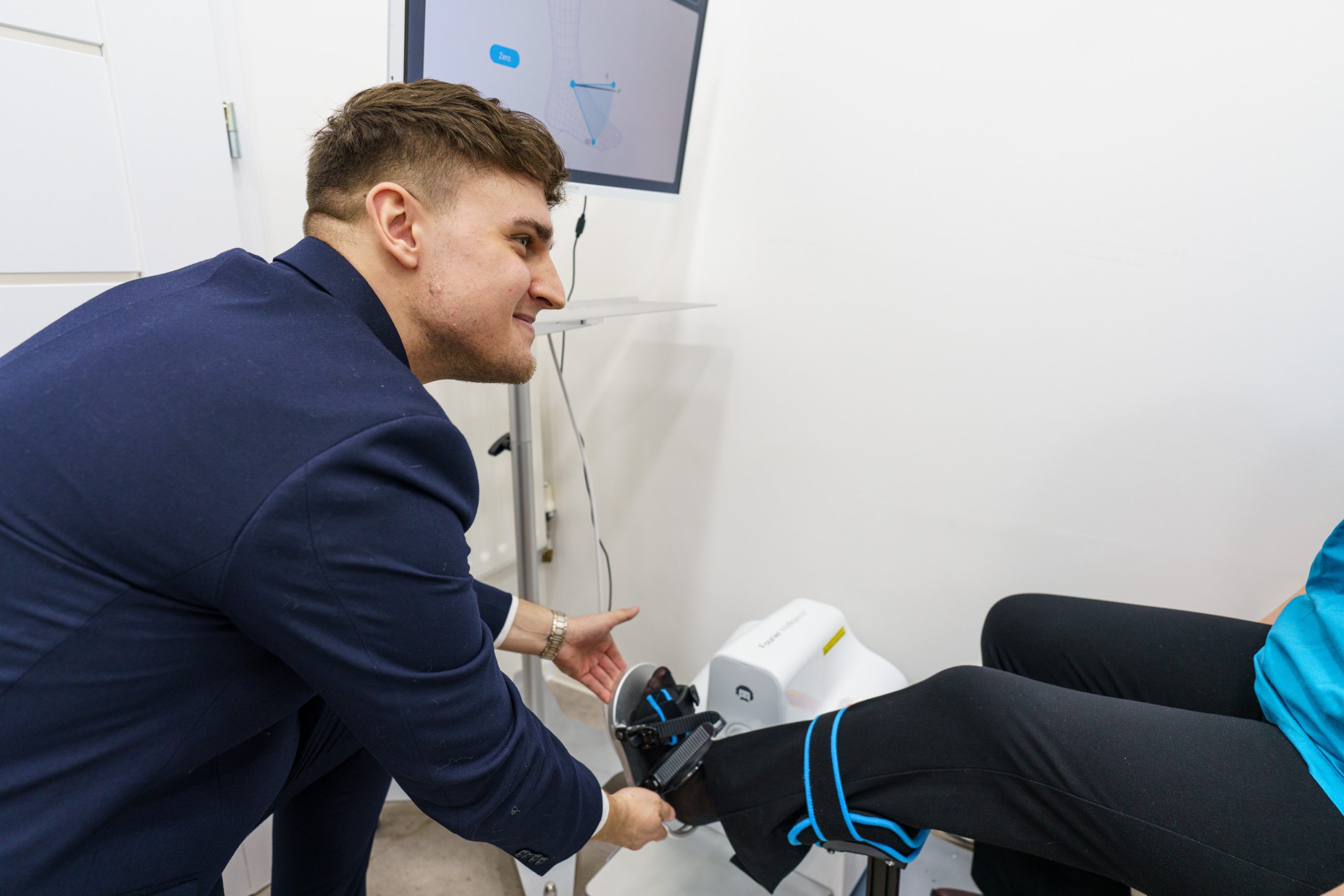



When it comes to knee injuries, the terms “medial” and “lateral” meniscus are often mentioned, but what do they really mean for patients navigating their recovery journey? At London Cartilage Clinic, we believe in empowering our patients with knowledge, helping you understand the anatomy, function, and treatment approaches for each type of meniscus tear. This article will delve into the differences between the medial and lateral meniscus, their roles in knee stability and movement, and how recovery can vary depending on which meniscus is injured.
The knee joint is cushioned by two C-shaped pieces of cartilage, known as the menisci. These structures serve as the knee’s shock absorbers, distributing weight and reducing friction during movement.
Both menisci are crucial for knee stability, load distribution, and lubrication of the joint. However, their differences in anatomy and attachment to the knee joint influence their injury patterns and recovery prospects.
When discussing meniscus tears, understanding the nature of your injury is vital for effective treatment and recovery. Here’s how injuries to the medial and lateral meniscus generally differ:
Symptoms can be similar for both types of tears, including pain, swelling, and difficulty moving the knee. A thorough examination by an orthopaedic specialist, often accompanied by imaging tests like MRI, is necessary for accurate diagnosis.
Not always. The treatment depends on the tear’s size, location, and the individual’s activity level. Many tears can be managed conservatively with physical therapy and rest.
Some minor tears, especially those in the “red zone” (areas with a good blood supply), can heal with conservative treatment. However, larger or more complex tears may require surgical intervention.
Recovery times vary depending on the surgery type, ranging from 4 to 6 weeks for a simple meniscectomy to 3 to 6 months for meniscus repair surgery.
Preventative measures include strengthening the muscles around the knee, improving flexibility, and avoiding activities that put undue stress on the knee joints.
Recent advances in regenerative medicine, including stem cell therapy and platelet-rich plasma (PRP) injections, offer promising alternatives for enhancing meniscal repair and recovery.
At London Cartilage Clinic, we’re dedicated to offering our patients the highest standard of care, combining orthopaedics, musculoskeletal medicine, and the latest in regenerative treatments. Understanding the nuances between medial and lateral meniscus tears is just the start. Whether you’re dealing with a fresh injury or seeking options for ongoing knee issues, our team is here to guide you through your recovery, ensuring you make the best decisions for your health and lifestyle.


All our treatments are selected to help patients achieve the best possible outcomes and return to the quality of life they deserve. Get in touch if you have any questions.
At London Cartilage Clinic, we are constantly staying up-to-date on the latest treatment options for knee injuries and ongoing knee health issues. As a result, our patients have access to the best equipment, techniques, and expertise in the field, whether it’s for cartilage repair, regeneration, or replacement.
For the best in patient care and cartilage knowledge, contact London Cartilage Clinic today.
At London Cartilage Clinic, our team has spent years gaining an in-depth understanding of human biology and the skills necessary to provide a wide range of cartilage treatments. It’s our mission to administer comprehensive care through innovative solutions targeted at key areas, including cartilage injuries. During an initial consultation, one of our medical professionals will establish which path forward is best for you.
Contact us if you have any questions about the various treatment methods on offer.
Legal & Medical Disclaimer
This article is written by an independent contributor and reflects their own views and experience, not necessarily those of londoncartilage.com. It is provided for general information and education only and does not constitute medical advice, diagnosis, or treatment.
Always seek personalised advice from a qualified healthcare professional before making decisions about your health. londoncartilage.com accepts no responsibility for errors, omissions, third-party content, or any loss, damage, or injury arising from reliance on this material. If you believe this article contains inaccurate or infringing content, please contact us at [email protected].